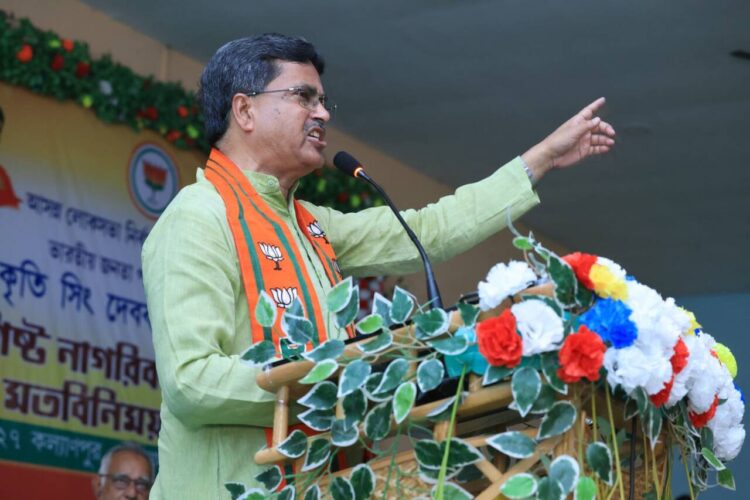Agartala: As the voting days are nearing for the first phase of polls for the Lok Sabha election in 2024, Tripura witnessed a fervent declaration by Chief Minister Manik Saha, who boldly proclaimed the imminent relegation of communist ideology to the annals of history, alongside the impending extinction of the Congress party. Speaking at an electrifying election rally in Chakmaghat, Khowai district, CM Saha’s words reverberated with confidence as he envisaged a political landscape devoid of these erstwhile ruling parties.
The backdrop to CM Saha’s assertions lay in the historical governance of the northeastern state. The Communist Party of India (Marxist)-led Left Front had held sway over Tripura for considerable stretches, punctuated briefly by Congress reigns. However, since the ascent of the Bharatiya Janata Party (BJP) to power in 2018, a seismic shift has been underway, with communists witnessing a steady erosion of their influence, necessitating an uneasy alliance with the Congress.
“The BJP’s ascendancy in Tripura has precipitated the decline of communism, compelling them to seek refuge in the Congress, a party whose past misrule inflicted hardship upon the people,” remarked CM Saha, reflecting on the evolving political dynamics.
Foreseeing the obsolescence of the Congress, CM Saha’s rhetoric echoed with conviction. “The days of the Congress are numbered, destined for extinction,” he declared, drawing a stark contrast to the burgeoning alliance between the Communist Party and the grand old party.
Saha did not mince words in his critique of the Left, envisioning a future where museums would serve as the final resting place for communist relics, requiring curious visitors to unearth their legacy. “While we may fade into obscurity, it is certain that the communists will find themselves immortalised in museums, relics of a bygone era,” he remarked pointedly.
Turning his attention to recent political manoeuvres, Saha defended Tipra Motha’s decision to align with the BJP-led alliance, rebuffing criticism from the opposition INDIA bloc. He lauded Tipra Motha’s leader, Pradyot Kishore Debbarma, for choosing the path of collaboration, thereby fortifying the ruling coalition.
The Tipra Motha, a tribal-centric party, emerged as a formidable force in the last election, securing 13 seats and assuming the mantle of the principal opposition. Its subsequent integration into the government fold, with two of its MLAs assuming ministerial roles, underscored the realignment of political forces in Tripura.
Emphasising the imperative of unity between tribal and non-tribal communities, Saha implored the BJP’s allies – Tipra Motha and the Indigenous People’s Front of Tripura (IPFT) – to sustain their electoral alliance with the saffron camp, charting a course towards developmental prosperity over the next five decades.
As Agartala braces for the electoral tides, Saha’s impassioned rhetoric sets the stage for a transformative political narrative, one characterised by the waning influence of communism and the resurgence of coalition politics in Tripura.




















Comments